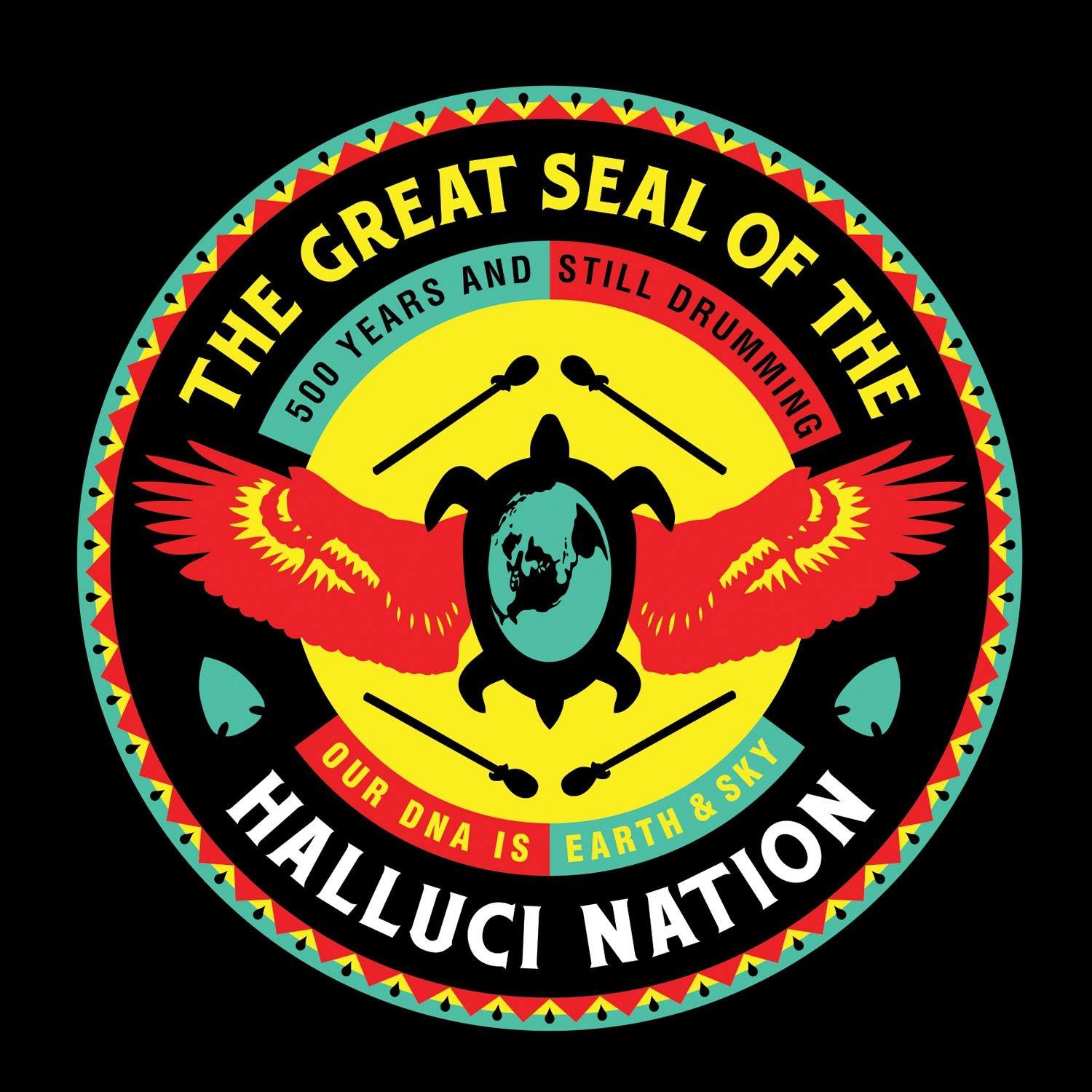Electric Intertribal
A Tribe Called Red, 2013 |

 |
A Tribe Called Red is a trio of three First Nations DJs based in Ottawa, Canada. What are some reasons why the borders of Native American nations do not end at the US borders with Canada and Mexico? |
 |
What elements of traditional powwow music are present in A Tribe Called Red's song? What is added to it? |
 |
What do you think this song might mean to Native American listeners? |
 |
What are some ways this song may help address twenty-first-century divisions or build unity between different types of people in the Americas? |
 |
Compare this song to Blackfire's "[Silence] Is a Weapon." How is the use of traditional Native American music different in each song? |
|

"Electric Intertribal" performed by A Tribe Called Red on Nation II Nation, © 2013 Available on iTunes, Spotify, and YouTube.
For more information about A Tribe Called Red, visit their official website. |

Because this song utilizes Native American vocables, lyrics are not available for it. |
|

Ottawa-based A Tribe Called Red is an activist trio consisting of three Aboriginal DJs: 2oolman, DJ NDN, and Bear Witness. The group, which formed in 2008, named themselves after A Tribe Called Quest, a hip-hop group from the 1990s that focused on African American social injustices. Their musical influences include hip-hop, electronic dance music, and traditional Native American music, especially powwow drumming. Through these means they create music that is contemporary in sound and message while maintaining a musical link to traditional Aboriginal music of the past. According to their website, "A Tribe Called Red is a modern gateway into urban and contemporary indigenous culture and experience, celebrating all its layers and complexity."
 |
| A Tribe Called Red's logo. |
A Tribe Called Red has vocally supported and written a song ("The Road," 2013) for a general activist movement in Canada called Idle No More, which calls for peaceful resistance to ensure indigenous independence and to protect the environment. The movement criticizes the displacement and treatment of First Nations peoples as well as the way the Canadian government has used the land in pursuit of profit.
A Tribe Called Red regularly leads an event they call an "Electric Pow Wow" at a club in Ottawa, demonstrating a "powwow step" that, according to Alexa Woloshyn, "blends samples of powwow drumming and singing with dubstep, a genre of electronic dance music featuring syncopated percussion, distorted sounds, and sub bass that resonates in the body due to its very low frequencies" (p. 1). Woloshyn describes the aims of A Tribe Called Red as focused on bringing together Aboriginal youth with music that "juxtaposes historical and contemporary notions of indigeneity" in its production (p. 2). "Electric Intertribal" is an example of this dance music. It contains no lyrics, and its focus is on movement as a vehicle for community building and empowering resistance. |


